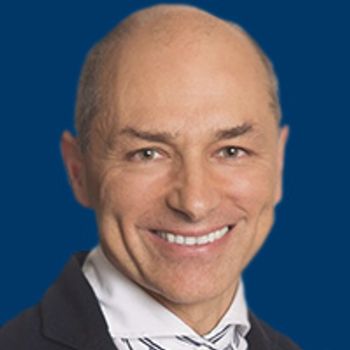
The addition of durvalumab (Imfinzi) and olaparib (Lynparza) to neoadjuvant paclitaxel was found to improve pathologic complete response rates compared with paclitaxel alone in patients with high-risk, HER2-negative stage II/III breast cancer.

Your AI-Trained Oncology Knowledge Connection!


The addition of durvalumab (Imfinzi) and olaparib (Lynparza) to neoadjuvant paclitaxel was found to improve pathologic complete response rates compared with paclitaxel alone in patients with high-risk, HER2-negative stage II/III breast cancer.

Patients with pretreated non–small cell lung cancer and EGFR exon 20 insertions demonstrated a 68.7% disease control rate while on poziotinib systemic therapy.

Results from the GEOMETRY mono-1 study demonstrated antitumor efficacy of and deep and durable responses with capmatinib in 97 patients with advanced non–small cell lung cancer who harbor MET exon 14 mutations.
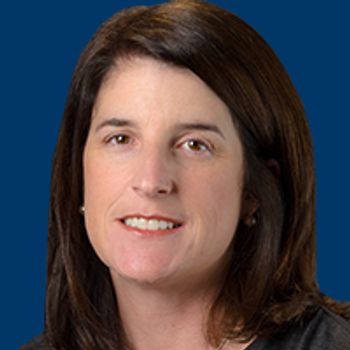
Treatment with talazoparib did not demonstrate a statistically significant overall survival benefit in patients with BRCA1/2-mutated metastatic HER2-negative breast cancer.
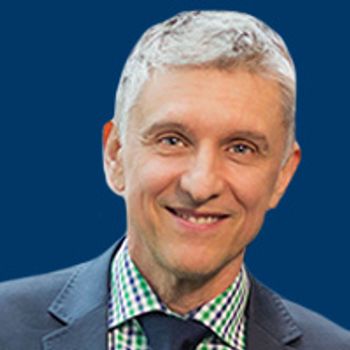
Treatment with atezolizumab in combination with vemurafenib and cobimetinib was found to significantly improve progression-free survival and produce durable responses versus vemurafenib and cobimetinib alone in treatment-naïve patients with BRAF V600–mutant advanced melanoma.
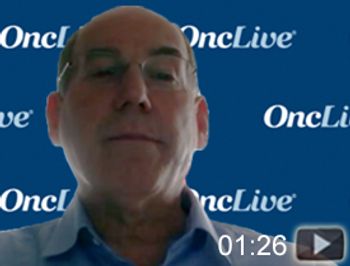
Michael J. Thirman, MD, discusses the clinical rationale for using the investigational agent SNDX-5613 to treat a subtype of acute myeloid leukemia and acute lymphoblastic leukemia.
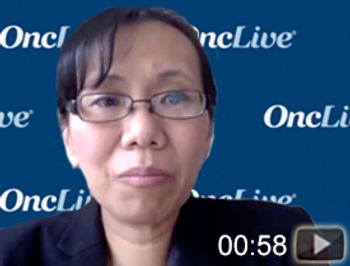
Andrea Wang-Gillam, MD, PhD, discusses the results of a phase 1 study with defactinib in patients with pancreatic ductal adenocarcinoma.

Continuous dosing with dabrafenib and trametinib improved progression-free survival compared with intermittent dosing in patients with BRAF mutation–positive advanced melanoma.
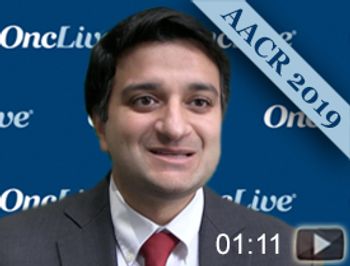
Sandip Patel, MD, associate professor of medicine at the University of California San Diego School of Medicine, discusses the benefit of the immune checkpoint inhibitor combination of ipilimumab (Yervoy) and nivolumab (Opdivo) in patients with rare, high-grade neuroendocrine tumors.

Primary tumor surgery for patients with stage IV HER2-positive breast cancer is associated with an improvement in overall survival, according to results of a retrospective cohort review presented at the 2019 AACR Annual Meeting.
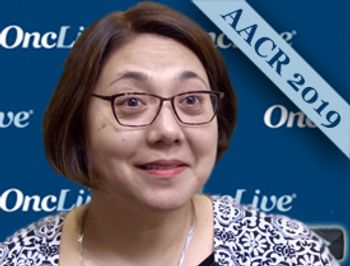
Lecia V. Sequist, MD, MPH, thoracic medical oncologist and director of the Center for Innovation in Early Cancer Detection at Massachusetts General Hospital Cancer Center, discusses the rationale for the TATTON trial in non–small cell lung cancer (NSCLC).
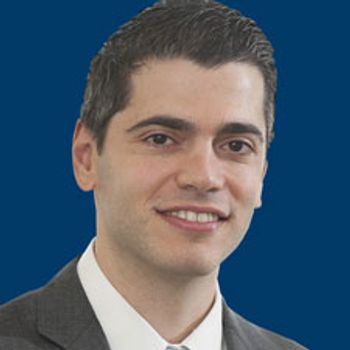
A third of patients with advanced TRK fusion tumors had objective responses to the second-generation TRK inhibitor LOXO-195 after failure of initial anti-TRK therapy.
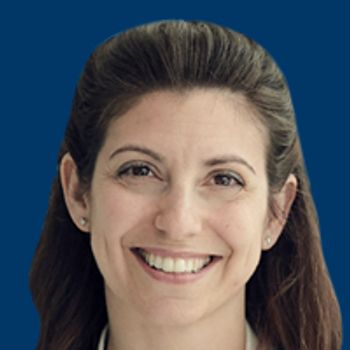
Maintenance therapy with rucaparib maintained disease control and was well tolerated in patients with platinum-sensitive, advanced BRCA1/2- or PALB2-mutant pancreatic cancer, according to preliminary interim findings of a single-arm, phase II trial.
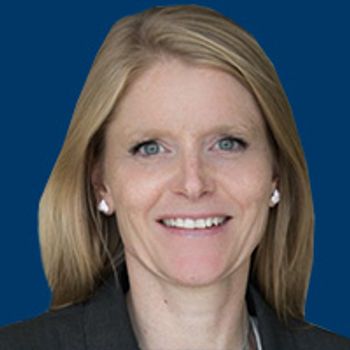
Tumor mutational burden identified patients who obtained a survival benefit with the PD-L1 inhibitor durvalumab, as initial therapy versus chemotherapy for advanced non–small cell lung cancer, even though the primary analysis of the randomized trial showed no difference between treatment groups, according to a new analysis.
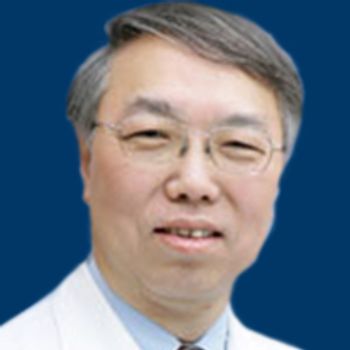
Pembrolizumab (Keytruda) demonstrated promising antitumor activity with durable responses in patients with pretreated advanced small cell lung cancer.
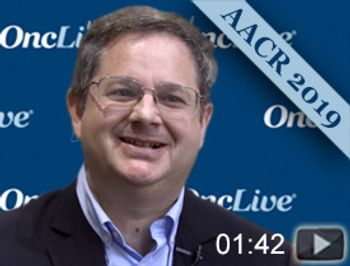
Eric J. Jacobs, PhD, cancer epidemiologist and strategic director of pharmacoepidemiology, American Cancer Society, discusses results from a prospective cohort study examining the association between BMI and pancreatic cancer mortality.
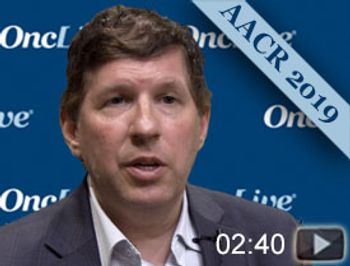
Steven M. Lipkin, MD, PhD, the Gladys and Roland Harriman Professor of Medicine, professor of medicine in the Division of Gastroenterology and Hepatology, and vice chair for research in the Weill Department of Medicine at Weill Cornell Medicine; and a geneticist at NewYork-Presbyterian/Weill Cornell Medical Center, discusses a study of a cancer prevention vaccine in a preclinical model of Lynch syndrome during the 2019 AACR Annual Meeting
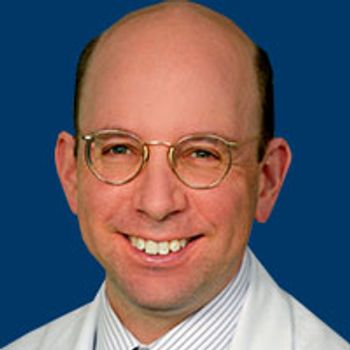
Gilteritinib was found to significantly improve overall survival in patients with relapsed/refractory FLT3 mutation–positive acute myeloid leukemia, according to updated findings of the phase III ADMIRAL trial.
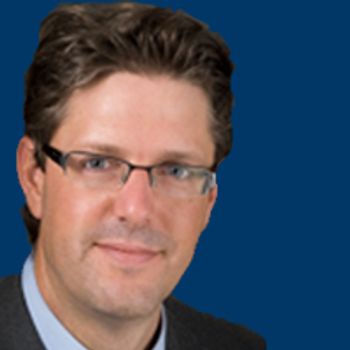
The PI3K-delta inhibitor umbralisib was found to demonstrate an overall response rate of 52% and show an encouraging tolerability profile in patients with relapsed/refractory marginal zone lymphoma, according to findings from a cohort of the phase IIb UNITY-NHL trial.

A majority of patients with large triple-negative breast tumors achieved pathologic complete response when treated with the viral oncolytic talimogene laherparepvec plus neoadjuvant chemotherapy.
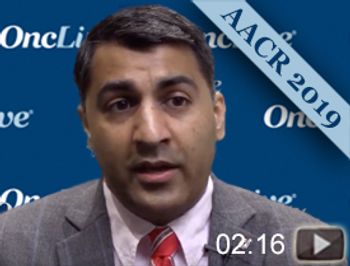
Sameek Roychowdhury, MD, PhD, associate professor of medical oncology, the Ohio State University Comprehensive Cancer Center, discusses a phase II study with infigratinib (BGJ398) in patients with cholangiocarcinoma.
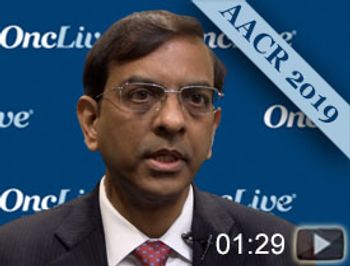
Prasad S. Adusumilli, MD, surgeon, deputy chief of Thoracic Service, co-director of the Mesothelioma Program, head of Solid Tumors Cell Therapy, Cellular Therapeutics Center, at Memorial Sloan Kettering Cancer Center, discussed the results of a phase I study exploring mesothelin-targeted CAR T-cell therapy in patients with advanced solid tumors during the 2019 AACR Annual Meeting.
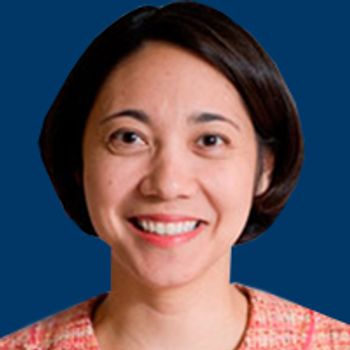
The combination of osimertinib and the MET inhibitor savolitinib demonstrated encouraging clinical activity and an acceptable risk-benefit profile in patients with EGFR-mutant, MET-amplified non–small cell lung cancer who previously received EGFR TKIs.
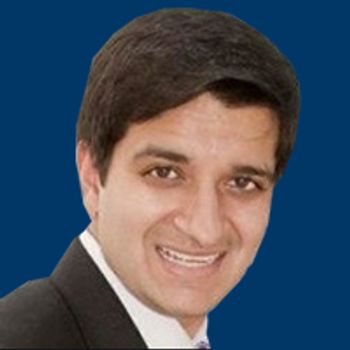
The immune checkpoint inhibitor combination of nivolumab and ipilimumab induced a greater than 40% response rate and was well tolerated in patients with high-grade neuroendocrine carcinoma.

CAR T cells targeting mesothelin-expressing tumors demonstrated safety and efficacy in a preliminary clinical evaluation in patients with malignant pleural disease.
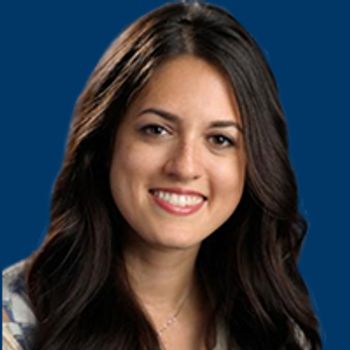
The administration of HER2-directed CAR T-cell therapy and lymphodepletion chemotherapy demonstrated antitumor activity and was found to be safe in pediatric and adult patients with advanced HER2-positive sarcoma.
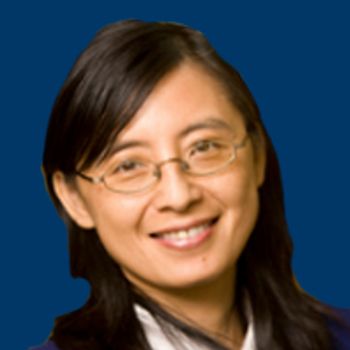
Pre-existing cardiovascular disease was associated with an increased mortality risk during the first 6 months of abiraterone acetate treatment in patients with advanced prostate cancer.
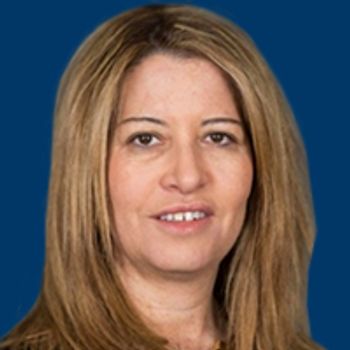
Many younger patients see more than one doctor and face misdiagnoses before being given a diagnosis of colorectal cancer.
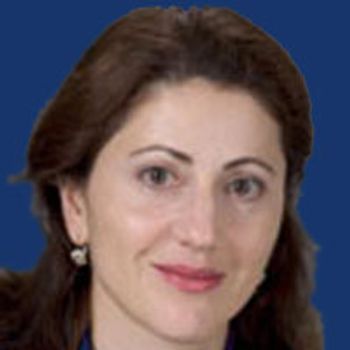
A liquid biopsy test detected all of the guideline-recommended biomarkers in newly diagnosed patients with metastatic non–small cell lung cancer at a similar rate but faster turnaround time to that of tissue genotyping.

Select patients with melanoma who consume a diet rich in fiber could see an improved response to treatment with immunotherapy.